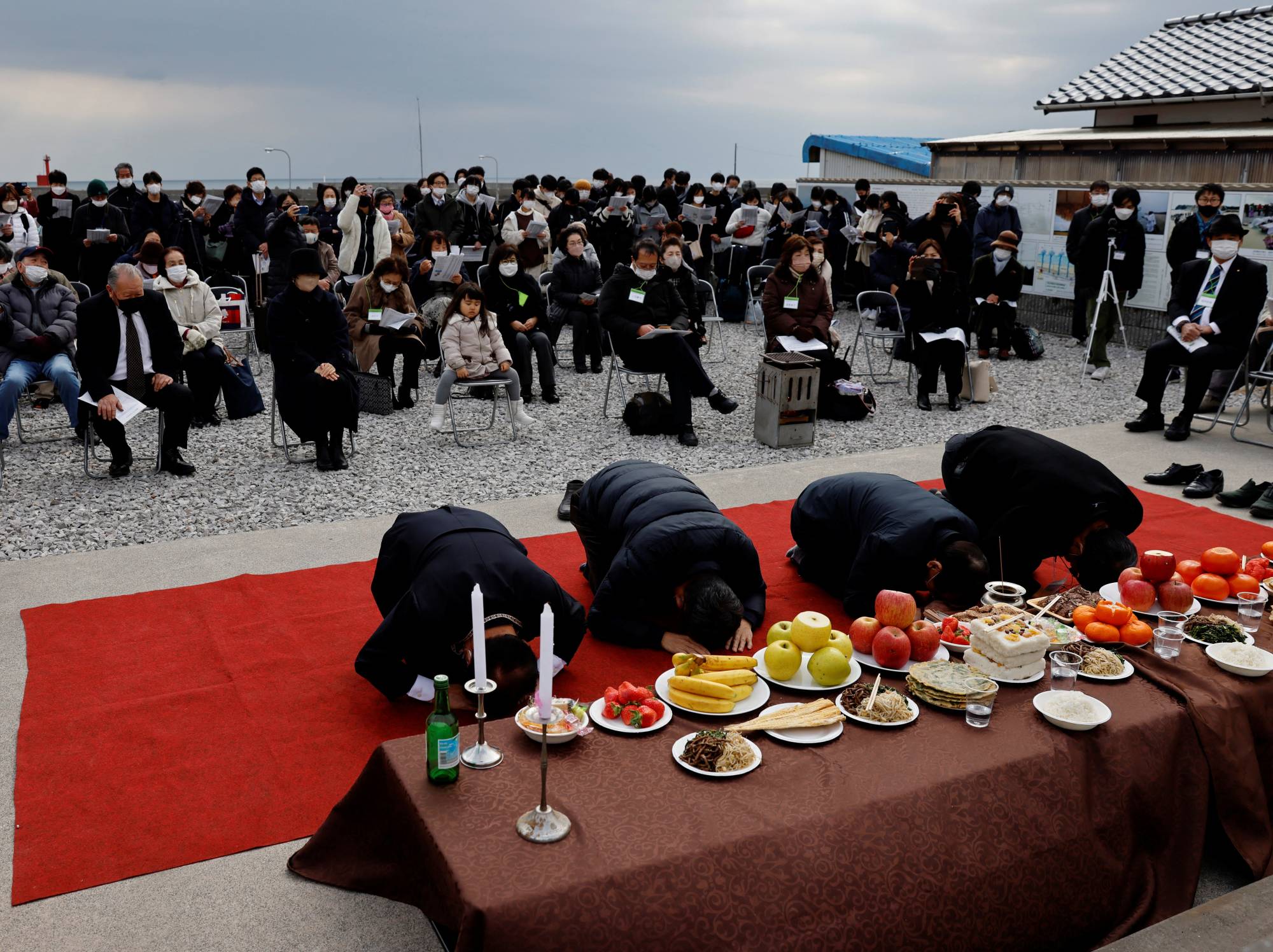On a crisp February morning, four elderly Korean men bowed their heads toward Japan's Seto Inland Sea as the surf lapped near their shoes.
They were paying respects to relatives entombed in a coal mine deep beneath their feet 80 years ago — among thousands of Korean bodies scattered across Japan in an enduring symbol of a colonial past that has long blighted ties between the neighbors.
But with renewed diplomatic efforts to improve relations, families of the men drafted to support Japan's war effort in what is known as the Chosei mine during the country's 1910-45 occupation of the Korean Peninsula, see a last chance for closure.

















With your current subscription plan you can comment on stories. However, before writing your first comment, please create a display name in the Profile section of your subscriber account page.